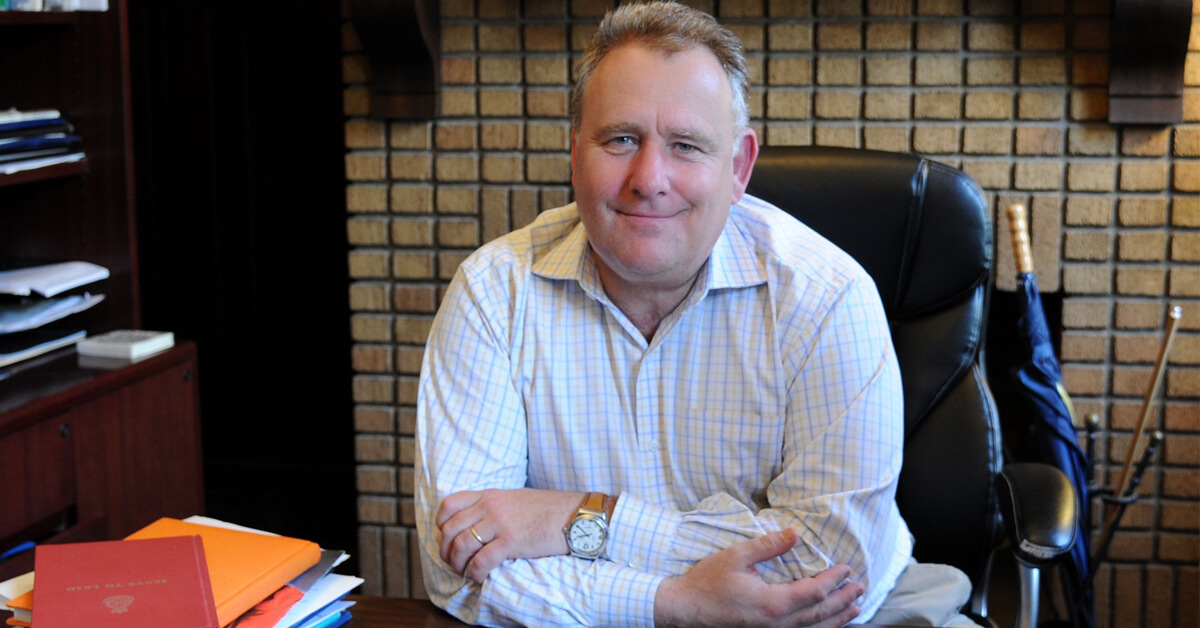With Olympic preparation plans up in the air because of the COVID-19 pandemic, the man at the eye of the storm is the U.S. Equestrian Federation’s director of sport, Will Connell.
“It’s a very challenging time for everyone,” said Will, who is working with USEF staff to sort out a way forward in the wake of uncertainty about this summer’s Tokyo Olympics.
There have been calls by athletes for the Games to cancel. Most recently, world number one dressage rider Isabell Werth suggested to Focus magazine that the International Olympic Committee should follow soccer and Formula A “and say now the Olympics in July will not happen.”
While the IOC recently has been insisting the Games will continue, it took a slightly different stance today, stating, “This is an exceptional situation which requires exceptional solutions. The IOC is committed to finding a solution with the least negative impact for the athletes, while protecting the integrity of the competition and the athletes’ health.
“No solution will be ideal in this situation, and this is why we are counting on the responsibility and solidarity of the athletes.”
During a press conference about the virus this afternoon, U.S. President Donald Trump was asked whether Japanese Prime Minister Shinzo Abe had said anything on a conference call about the fate of the Olympics.
“He told us he has not made a decision,” the President said. But it’s interesting to remember that February training of volunteers for the Games had been put off until May.
Meanwhile, USEF is trying to figure out the next step while facing a forest of questionmarks. “As a national federation, it’s black and white. It’s either on or it’s off,” said Will, who prior to coming on board with USEF was the British Equestrian Federation’s performance director.
“Mentally, that’s where we have to be. Our job is to support the athletes, to make sure if it is on, everything is in place.”
Beyond that, he said, “We’re trying to work through how we would re-energize competition and the programs once the cancellations stop. That’s obviously a huge amount of work.”
He explained, “We’re re-looking at all the selection procedures across everything we do and looking at how we would go forward when things are up and running again.”
At this point, “from the Olympic and Para side, it’s very clear that there are athletes out there across some other disciplines or sports that have understandable concerns. Training schedules are in chaos.
“Currently, the competition calendar almost globally is on lockdown, isn’t it?” he pointed out. “It’s kind of a waiting game. Athletes aren’t able to compete and some athletes can’t train because their gyms, pools and club are on lockdown. People will be worried about their health and their families’ health.
“I think it is incredibly difficult times for athletes, because they don’t know when the green light is going to come back on. We’re here to help them,” he said, noting the U.S. Olympic and Paralympic Committee also is available to give athletes advice and support.
U.S. show jumpers and dressage riders had “good opportunities” this winter to compete in Florida and California, although Will also pointed out that in those disciplines, there were horses for which riders had planned to come out in March and April, but got shut out or had limited time to compete.
The big problem however, involves eventing.
“The eventing preparation events for the Olympics have been wiped off the map,” he said. “It’s completely decimated their season.”
The cancelled fixtures include two major U.S. observation competitions, April’s 5-star Land Rover Kentucky event and the Jersey Fresh International in May.
USEF is “trying to find some additional dates for events in the buildup to the Games. We’re working hard with organizers. You’re trying to project forward. How does one project forward and work 30 to 90 days in advance? It’s challenging. It’s a rolling deadline.”
Part of the problem involves licensing issues if one competition is put on the date of another. “It’s a very complicated picture we’re trying to manage and I don’t think we’re there yet, but we’re getting there in terms of the process.” He added that even if the Games are called off, “the challenge is trying to get the sport back on its feet. Obviously, a lot of people are losing a lot of revenue.” That involves not only organizers, coaches, trainers and riders, but also grooms, jump crew and others connected to the industry in so many different ways. Will fears the economic impact will be a lasting one.
The situation in one respect calls to mind the 2001 disaster for equestrian sport in the United Kingdom because of foot-and-mouth disease.
“The whole equestrian industry had to close down, everything was cancelled,” Will remembered.
Although the disease involved only cloven-hoofed animals such as sheep and pigs (horses cannot be infected) the disease was so contagious that carrying it mechanically — on horses’ hooves, blankets, trailers and vans — meant shows had to be cancelled to stop its spread and much of the season (including the prestigious Badminton Horse Trials) was lost. The first case of foot-and-mouth was in February and the last was September 30.
But the sport bounced back, as it surely will this time, though it may take longer.

